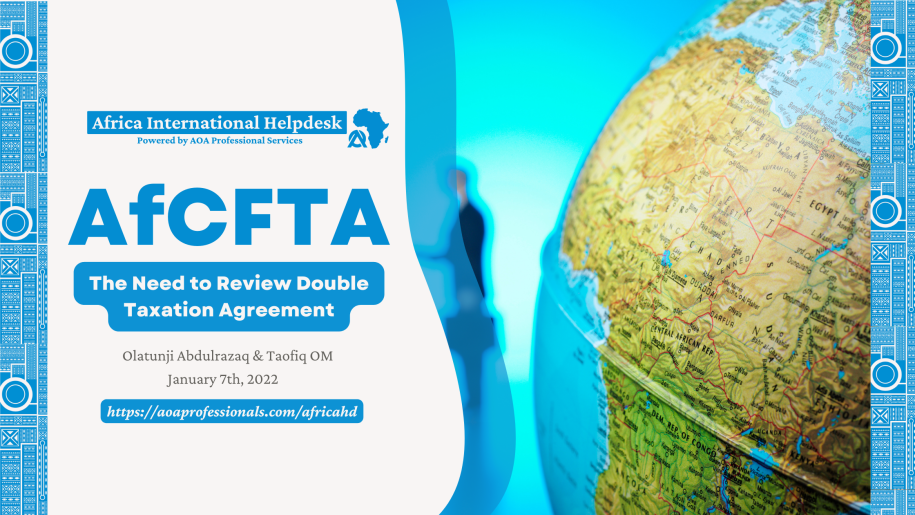A Tax Treaty otherwise called an Avoidance of Double Taxation Agreement (ADTA) or Double Taxation Agreement (DTA) could be described as an agreement between two or more countries (otherwise known as the Contracting States or parties) to make sure that a resident of one or both of the contracting countries does not suffer from paying tax twice on the same income in both jurisdictions or unduly benefit from not paying appropriate taxes in any of the countries through tax evasion or avoidance. The Agreement covers taxes on income and capital only and does not extend to consumption taxes such as Value Added Tax or Sales Taxes.
Over the last few decades, the number of bilateral tax treaties has increased dramatically. The United Nations Model Double Taxation Convention Between Developed and Developing Countries (“UN Model Convention”) and the Organisation for Economic Co-operation and Development’s Model Tax Convention on Income and on Capital2 (“OECD Model Convention”) provide models for countries to use in negotiating the terms of their treaties and are regularly updated. For purposes of both the UN and OECD Model Conventions, it is assumed that any rules for the application of the provisions of those Model Conventions are a matter for the domestic law of the contracting states. Consequently, there are no general rules in the Model Conventions or in the Commentaries concerning how the provisions of the treaty should be applied.
Speaking at the launch of “Dangers of Double Tax Agreement in Financing Development: a case study in Ghana,” Mrs. Ofori-Kwafo said the report emphasized the need to adopt a harmonized DTA model, which would take into consideration diversities in the African economies.
She said in view of that, Tax Justice Network Africa (TJNA), in collaboration with its members of South and Eastern Africa Trade Information and Negotiation Institute (SEATINI Uganda), Civil Society Legislative Advocacy Centre Nigeria (CISLAC), Ghana Integrity Initiative (GII), Policy Forum Tanzania and Centre for Trade Policy and Development (CTPD) Zambia with support from Open Society Foundation (OSF) had conducted a joint study on the Dangers of DTAs in Financing Development in Africa with case studies of Ghana, Nigeria, Tanzania, Uganda, and Zambia.
In general, the tax authorities of a country should apply the provisions of its tax treaties to prevent tax avoidance and evasion. This requires careful consideration of the inclusion of anti-abuse rules in tax treaties and the adoption of domestic anti-avoidance rules that can be applied to treaty abuses. However, in addition to ensuring that the appropriate anti-avoidance rules are in place, the tax authorities must have the capacity to interpret, apply and enforce those rules concerning treaty abuses.
Given the African Continental Free Trade Agreement (AfCFTA), there is, therefore, the need for a thorough review and renegotiation of the Double Taxation Agreement to resolve challenges regarding tax evasion and avoidance in the continent.
DISCLAIMER:
The material contained in this publication is provided for general information purposes only and does not contain a comprehensive analysis of each item described. Before taking (or not taking) any action, readers should seek professional advice specific to their situation. No liability is accepted for acts or omissions taken in reliance upon the contents of this alert.
AOA Professional Services is an indigenous tax, regulatory and advisory service firm driven by the values of professionalism and partnership. For further information on the subject matter, reach out to our Africa International Helpdesk

